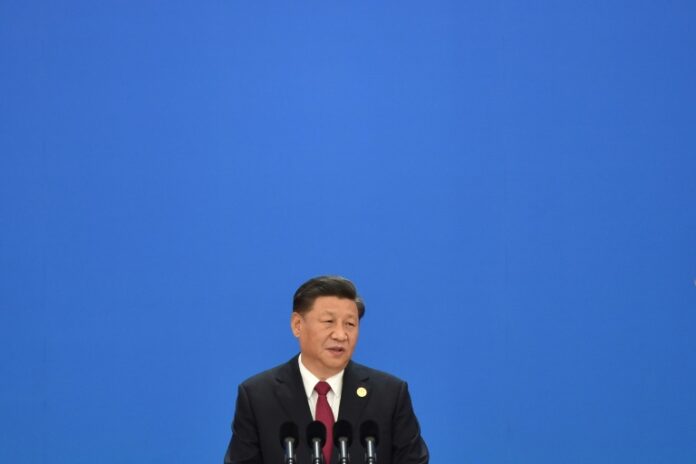Xi warned against a return to Cold War-era tensions in the Asia-Pacific, urging greater cooperation on pandemic recovery and climate change. — AFP photo
WELLINGTON (Nov 11): Chinese President Xi Jinping warned on Thursday against a return to Cold War-era tensions in the Asia-Pacific, urging greater cooperation on pandemic recovery and climate change.
Amid growing tensions with the United States over Taiwan, partially offset by a surprise deal between Beijing and Washington on climate, Xi said all countries in the region must work together on joint challenges.
“Attempts to draw ideological lines or form small circles on geo-political grounds are bound to fail,” he told a virtual business conference on the sidelines of the Asia-Pacific Economic Cooperation summit.
“The Asia-Pacific region cannot and should not relapse into the confrontation and division of the Cold War era.”
The Chinese leader called for a joint effort to close the “immunisation gap”, making Covid-19 vaccines more accessible to developing nations.
“We should translate consensus that vaccines are a global public good into concrete actions to ensure their fair and equitable distribution,” he told the New Zealand-hosted summit.
Xi said countries should step up cooperation in research, production, testing, and mutual recognition of vaccines, “to emerge from the shadow of the pandemic and achieve steady economic recovery at an early date”.
China on Wednesday said it had reached an understanding with the United States at a summit in Glasgow on climate change, a key area on which the Biden administration sees the potential for cooperation.
Xi did not mention the US deal directly but said “all of us can embark on a path of green, low-carbon sustainable development”.
‘Green development’
“Together, we can usher in a future of green development,” he said.
“China will stay committed to promoting win-win cooperation and contribute to the economic development of the Asia-Pacific region.”
The global warming pact came ahead of expected virtual talks between Xi and US President Joe Biden, reportedly to be held as soon as next week.
It also came at a time of rising tension in the Asia-Pacific.
Beijing has ramped up military activities near Taiwan, a self-ruling democracy claimed by China, with a record number of planes intruding into the island’s air defence identification zone in early October.
US Secretary of State Antony Blinken said Wednesday that the United States would ensure Taiwan can defend itself to avoid anyone “trying to disrupt the status quo by force”.
China also claims almost all of the resource-rich South China Sea, through which trillions of dollars in shipping trade pass annually, rejecting competing claims from Brunei, Malaysia, the Philippines, Taiwan, and Vietnam.
Against that backdrop, the United States, Britain and Australia announced in September that they had formed a new alliance — AUKUS — under which Australia will acquire nuclear-powered submarines using US technology.
Although delivery is years away and China was not specifically named, the announcement angered China and separately sparked a furious row with France which saw its previously negotiated contract for selling Australia conventional submarines torn up. — AFP


